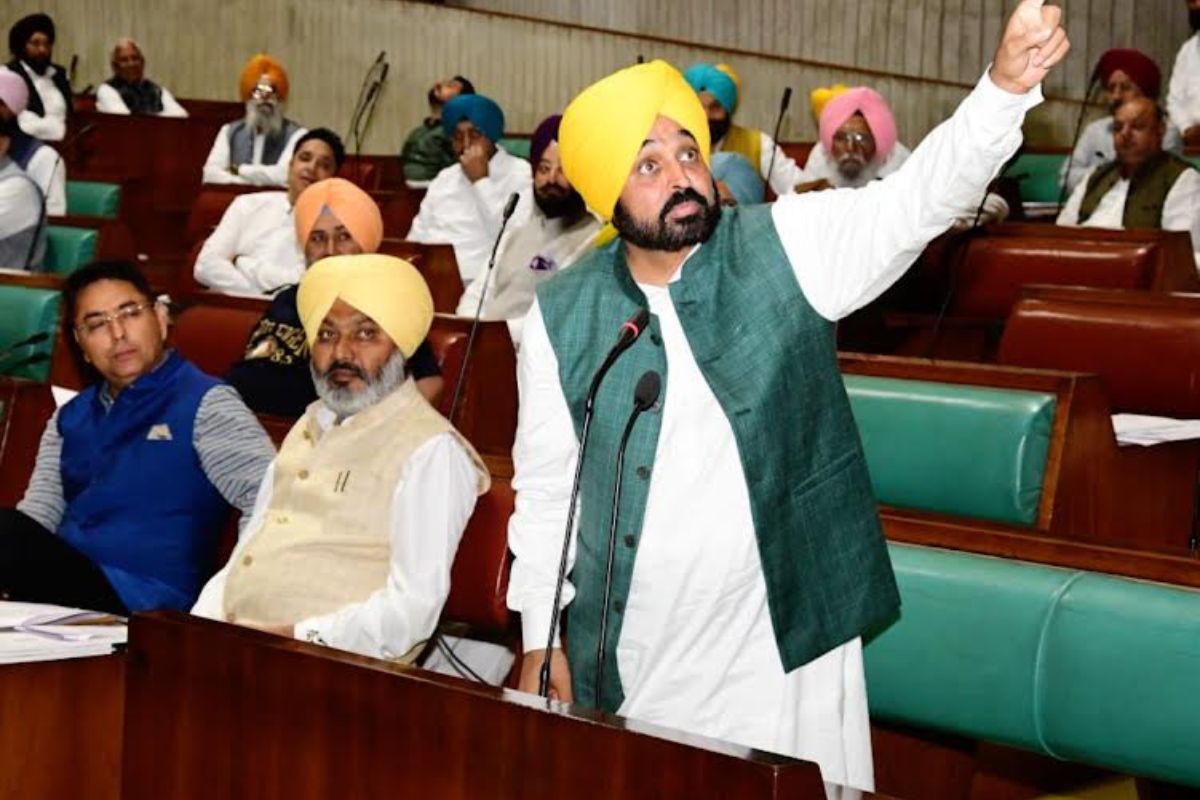Sikh Gurdwara Act amendment by Bhagwant Mann govt, and the Panth
In a brazen display of audacity, the Bhagwant Mann-led AAP government of Punjab has unabashedly meddled in Sikh religious affairs, passing an amendment to the Sikh Gurdwara Act 1925. This contentious move has stirred up a storm in Panthic circles, raising critical questions about political motivations and the sanctity of Sikh institutions. Join this fiery debate, anchored by senior journalist and anchor S. P. Singh, unraveling the historical backdrop and the potential consequences of this legislative juggernaut.
![In a brazen display of audacity, the Bhagwant Mann-led AAP government of Punjab has unabashedly meddled in Sikh religious affairs, passing an amendment to the Sikh Gurdwara Act 1925. This contentious move has stirred up a storm in Panthic circles, raising critical questions about political motivations and the sanctity of Sikh institutions. Join this fiery debate, anchored by senior journalist and anchor S. P. Singh, unraveling the historical backdrop and the potential consequences of this legislative juggernaut. The newly inserted […]](https://www.theworldsikhnews.com/wp-content/uploads/2023/06/Gurdwara-Act-Amendments-360x267.jpg)
The newly inserted S. 125A in Sikh Gurdwara Act 1925 – “it shall be the duty” of SGPC to make uninterrupted live feed, audio, video, of holy Gurbani…available free of cost to all media houses, outlets, platforms, channels …. whoever wishes to broadcast anywhere all over the world.
With Punjab’s ruling Aam Aadmi Party’s politics pivoted on anti-Badal’ism electoral machinations, the latest move to ostensibly “free the Gurbani telecast from the control of a private channel” by amending the Sikh Gurdwara Act, 1925 and casting aside an elected body like the SGPC, the political fault lines in panth and Punjab present a challenge as well as an opportunity to dwell on some key issues.
Three of Punjab’s fiercely independent voices — senior journalist-activist Hamir Singh, Sikh legislative affairs expert and World Sikh News editor Prof Jagmohan Singh and public intellectual Dr Pyara Lal Garg — were on the panel discussion moderated by senior journalist SP Singh, dwelling upon the topical issue, connecting it to other contemporary happenings, and exploring the historical background of the latest legislative exercise.
For Aam Aadmi Party (AAP), the move is a chance to tell the electorate it is taking on the mighty Badals who control all major Panthic platforms; for Badals’ detractors, it might actually help loosen SAD’s hold on the thousand-crore-budget SGPC; and for the panth, I has triggered a painful history recall of the regime’s interference in Sikh affairs.
Will AAP find ways to directly, or indirectly contest SGPC elections? Will it be a repeat of the Sadh Sangat Board experiment launched in 1960 by the Congress party? Will it not actually be playing into the hands of the BJP which will have all the chips to settle any power bargain? Can AAP afford a major conflict with Panthic forces? Will Panthic forces rather see it as a golden chance to loosen the vice-like grip of Badals and actually secretly celebrate the new legislative exercise?
Why is the Akali Dal shying away from mass action on the streets? Why has the power of a party of morchas dissipated to an extent where it failed to put up a power show even after such a direct attack?
This is the Punjab Assembly directly declaring an interference in Sikh affairs. It is a direct challenge to decades of balance achieved via an understanding between Master Tara Singh and Jawahar Lal Nehru at one time, and a decision not to dither too far away from that line by later regimes.

Why is the SGPC or Akali Dal not pressing for an All India Sikh Gurdwara Act despite it being at one time a top demand of the Dharam Yudh Morcha?
The SGPC’s remit is much larger than merely managing gurdwaras. It actually draws much of its authority not from just law, but from history, from the conduct of its leaders.
Can Akali Dal launch a successful fight against this latest political onslaught without first re-assuming the ownership of its core and fundamental agenda of autonomy of the Panth as well as Punjab? In simpler modern political terminology, it is called federalism.
Is Akali Dal even talking about it?
Please watch this scintillating debate, and share it further, because we believe it is a debate that must travel and trigger a thousand conversations. It’s been a long time since the Panth looked inwards and searched where things got de-tracked.
